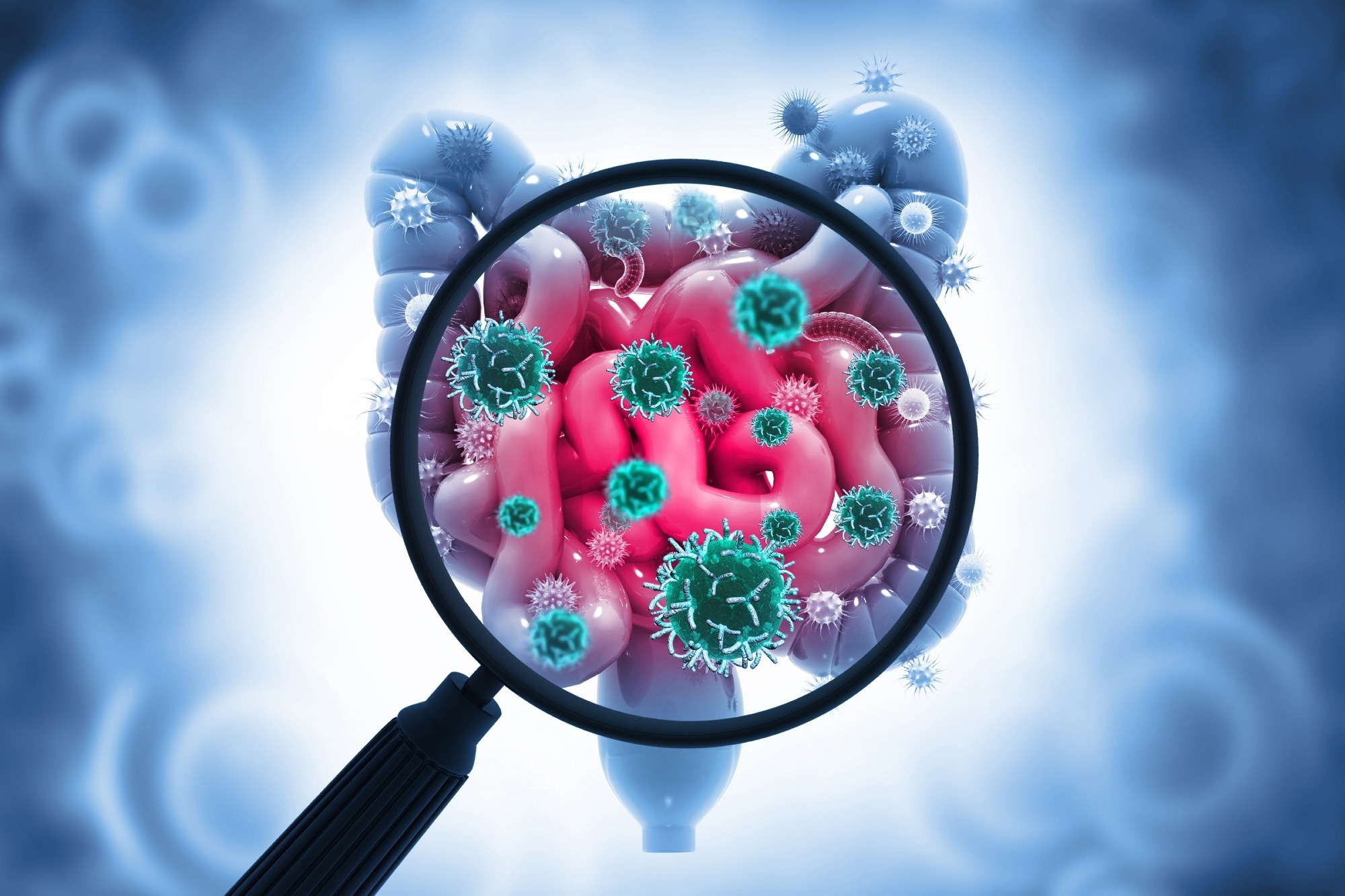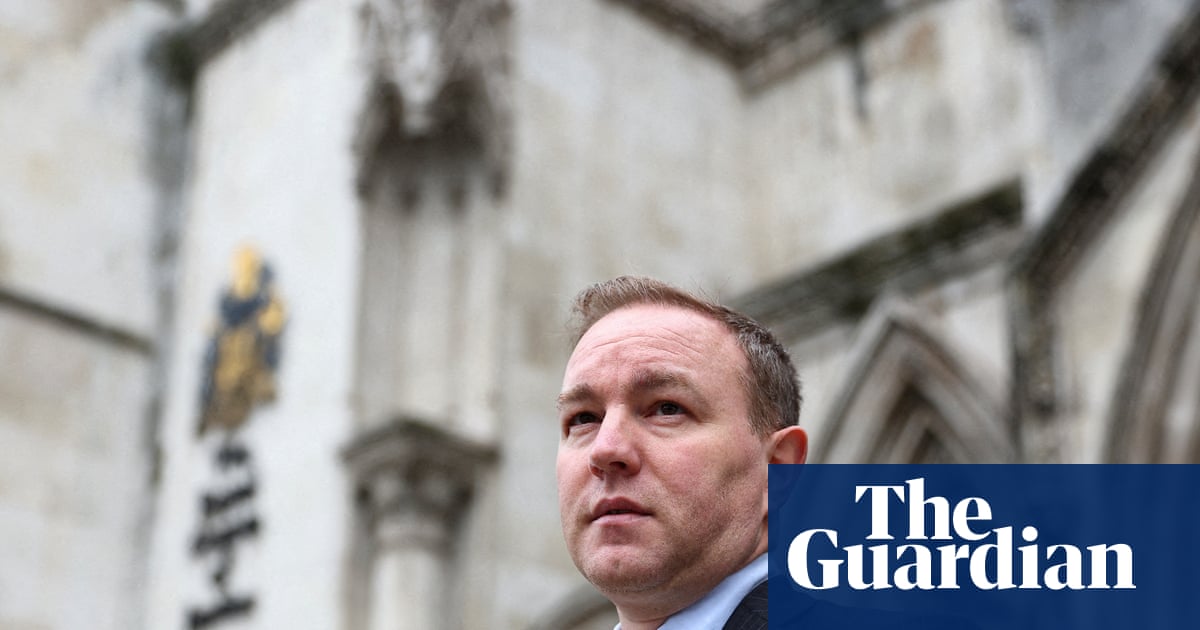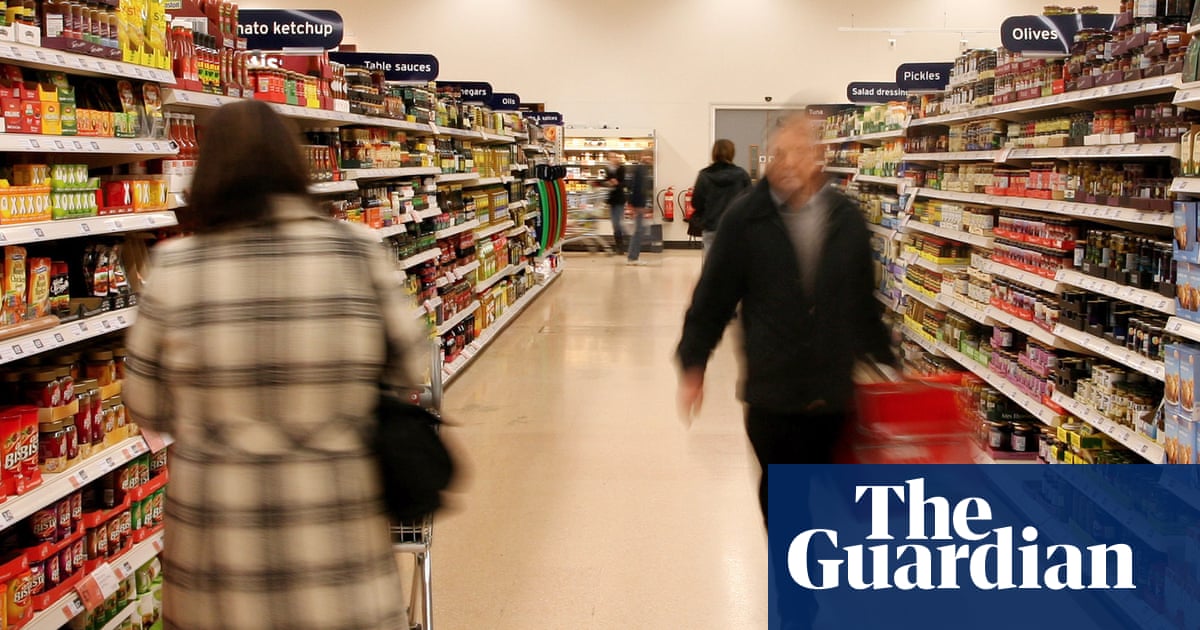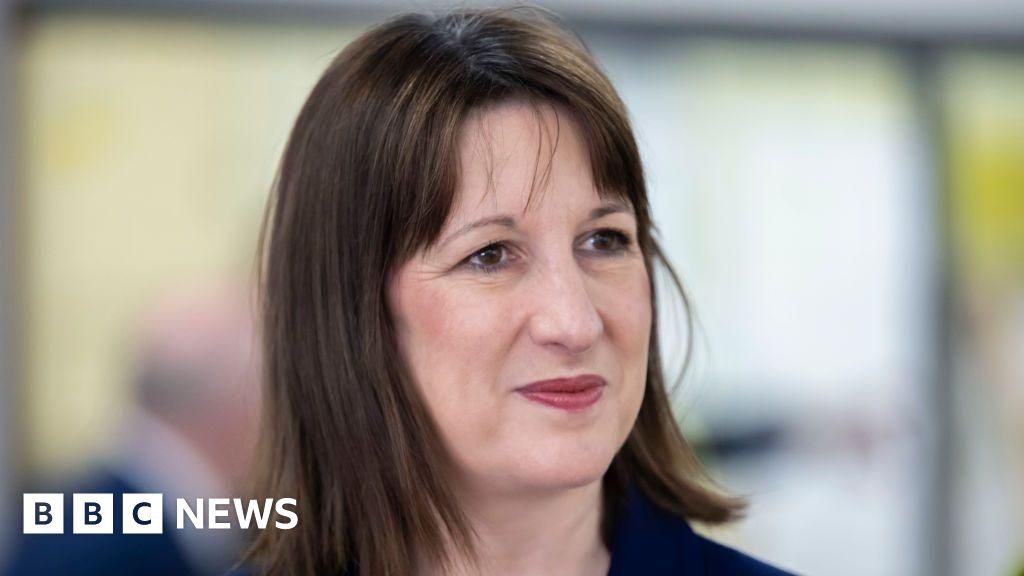A global research team has pinpointed the enzyme fueling hydrogen production in healthy guts and shown how its depletion rewires microbial energy networks in Crohn’s disease, reshaping our understanding of gut metabolism.
Study:

A global research team has pinpointed the enzyme fueling hydrogen production in healthy guts and shown how its depletion rewires microbial energy networks in Crohn’s disease, reshaping our understanding of gut metabolism.
Study:

Tom Hayes, the first banker jailed over Libor interest rate rigging, is suing his former employer UBS for $400m (£300m), claiming he was a “hand-picked scapegoat” for the Swiss bank as it tried to avoid regulatory scrutiny.
The claim, which was publicly filed in a US court in Connecticut on Monday, alleges that UBS misled US authorities and called him an “evil mastermind” behind the alleged Libor scandal, in order to protect senior executives and minimise fines.
Hayes spent five and a half years of an 11-year term in prison after he was accused of being a ringleader in a vast conspiracy to fix the now defunct London Interbank Offered Rate (Libor), which was used to price trillions of pounds worth of financial products, between 2006 and 2010.
The wider scandal, which erupted in 2012, led to fines of almost $10bn for a dozen banks and brokerages. Hayes maintained his innocence and claimed during his original trial that he was taking part in an “industry-wide” practice, accusing regulators of making him a scapegoat.
Hayes is now seeking recompense for the suffering he says he faced as a result of his original ruling.
He is suing UBS for “malicious prosecution”, and says UBS conducted a “fundamentally flawed” investigation in order to pin the blame on Hayes.
Efforts to sue UBS come months after the UK supreme court overturned a decade-old ruling against Hayes in July. That decision was based on faults in the original trial, with the original judge determined to have given “inaccurate and unfair” instructions to the jury that found Hayes guilty on charges of conspiracy to defraud. This meant the former banker was ultimately deprived of a fair trial.
However, the supreme court judges stopped short of fully exonerating Hayes, saying there was “ample evidence” that could have led a jury, if properly directed, to find him guilty. “But the jury was not properly directed,” the ruling explained, adding: “The convictions are therefore unsafe and cannot stand.”
Commenting on the lawsuit against UBS, Hayes said: “It has taken me over a decade to overturn my wrongful conviction and clear my name. My legal team are now rightlyfully holding UBS to account for scapegoating me in order to save billions in fines and protect its senior executives.
“My life was ruined by the bank’s actions – I lost my liberty and my marriage, missed out on my son’s childhood, and my physical and mental health suffered terribly. UBS also destroyed my reputation and career.”
after newsletter promotion
“I look forward to putting my case in front of a jury to scrutinise UBS’s conduct in relation to these tragic and unnecessary events,” Hayes added in a statement.
UBS declined to comment.

Toothpaste, coffee and even heartburn medicine are among the latest products quietly shrinking in size while shoppers pay the same price, piling more pressure on household grocery budgets.
Consumer watchdog Which? found a range of new examples of shrinkflation as brands cut back on quantity and quality in an effort to reduce their own costs.
One of the worst instances was Aquafresh complete care original toothpaste, which went from £1.30 for 100ml to £2 for 75ml at Tesco, Sainsbury’s and Ocado – a 105% increase per 100ml.
Haleon Great Britain and Ireland, which owns the Aquafresh brand, told the Guardian: “We understand that people across the UK are facing pressure on their finances. Prices go up and down for a variety of reasons, and we always work hard for people to receive the highest quality products at the lowest price so that the whole family can take care of their teeth.”
Gaviscon heartburn and indigestion liquid shrank from 600ml to 500ml, with Sainsbury’s keeping the price at £14 – equivalent to a 20% increase per 100ml. They did not respond to a request for comment.
Nescafé original instant coffee was cut from 200g to 190g at Tesco, Morrisons and Asda – about a 5% rise per 100g. A Nestlé spokesperson said: “Like every manufacturer, we have seen significant increases in the cost of coffee, making it much more expensive to manufacture our products … Retail pricing is always at the discretion of individual retailers.”
Chocolate has also been hit by rising cocoa prices, with Quality Street tubs reduced from 600g to 550g and prices at Morrisons increasing from £6 to £7 – a 27% rise per 100g. Club and Penguin biscuits, both made by McVitie’s, can no longer be described as chocolate biscuits, as they now contain more palm oil and shea oil than cocoa, a change first reported by trade journal The Grocer.
Which? said any changes, whether to product size or recipe, should be made clear so that shoppers can make informed choices.
Reena Sewraz, retail editor at the watchdog, said: “Households are already under immense financial pressure with food bills inching up and the expense of Christmas looming on the horizon … Supermarkets must be more upfront about their prices so that it’s easy to see what the best value is.
“This includes ensuring that their unit pricing is prominent, legible and consistent in-store and online to help customers easily compare costs across different brands and sizes of packaging; that way shoppers can be more confident they’re getting the best value.”
Hopes that the pressure on households may be easing came from news that UK shop price inflation fell to 1% in October from 1.4% in September, according to the British Retail Consortium, helped by a drop in sugar prices and early Black Friday discounts on electrical and beauty goods.
The drop was led by packaged and tinned foods, where inflation eased to 2.9% in October from 4.2% the previous month. Non-food prices fell by 0.4%, compared to the previous month’s 0.1% decrease, according to the latest shop price monitor from the BRC and research firm NIQ. These shifts offset a rise in fresh food inflation, which increased to 4.3% from 4.1% as prices for beef, poultry and fruit climbed in response to higher domestic production costs.
Helen Dickinson, the chief executive of the BRC, said: “Overall shop price inflation slowed in October, driven by fierce competition among retailers and widespread discounting. While food inflation remains high, especially for fresh food where prices continued to rise, it eased for ambient goods.
“Easing global sugar prices helped to bring down prices of chocolate and confectionery, a treat for those preparing Halloween parties. Beyond food, discounts came early to electricals and health and beauty, as retailers started promotions ahead of Black Friday month.”

Enjoying original works of art in a gallery can relieve stress, reduce the risk of heart disease and boost your immune system, according to the first study of its kind.
Researchers measured the physiological responses of participants while viewing…

Kyoto, Japan — Down here on Earth we don’t usually notice, but the Sun is frequently ejecting huge masses of plasma into space. These are called coronal mass ejections (CMEs). They often occur together with sudden brightenings called…

EPALINGES, Switzerland, Oct. 27, 2025 /PRNewswire/ — Onward Therapeutics SA, a clinical stage oncology company, today announced that its French subsidiary, Onward Therapeutics…

The chancellor is facing a larger-than-expected gap in initial Budget numbers as a result of long-running poor productivity in the UK economy.
The downgrade to productivity performance from the government’s official forecaster could lead to a £20bn gap in the public finances on its own, the BBC understands.
The Office for Budget Responsibility (OBR) will deliver its final draft forecast, showing the output of the economy per hour worked, to the Treasury on Friday.
The Treasury declined to comment on “speculation” ahead of the OBR’s final forecast, which will be published on 26 November.
It comes as speculation is growing over what choices Chancellor Rachel Reeves will take for tax and spending in the run up to her Autumn Budget.
The OBR previously assumed a partial bounce back in productivity growth, but it has never materialised.
This productivity assumption is essential to long-term growth prospects and so, under the current system, even a fraction of a percentage point change can alter how much money a Budget needs to raise by several billion pounds.
The OBR is understood to have downgraded this by 0.3 percentage points – a figure first reported by the Financial Times – bringing its assumption closer to that of the Bank of England.
The Institute for Fiscal Studies think-tank has calculated that for every 0.1 percentage point downgrade in the productivity forecast, public sector net borrowing would increase by £7bn in 2029-30 – meaning a 0.3 point cut could add £21bn to the Budget hole.
The changes open up an initial gap of some £20bn, rather than the £10-£14bn widely anticipated.
Such a hole could be plugged by hiking taxes, reducing public spending or increasing government borrowing.
Reeves admitted on Monday to business leaders in Saudi Arabia that the OBR was “likely to downgrade productivity” which has been “very poor since the financial crisis and Brexit”.
The OBR is expected to explain the decision in detail, but some ministers have privately pointed out that if it had done this earlier, different choices could have been made at this summer’s Spending Review.
There are many other moving parts in the Budget which may lean in the other direction, such as the decline in the interest rates paid on government debt.
However, with other pressures such as the U-turns on welfare spending and a desire to rebuild a bigger buffer in the public finances, speculation is pointing towards significant tax rises including some possible breaches of manifesto commitments, points towards significant tax rises, including possible breaches of manifesto commitments like income tax.
The Treasury will inform the OBR of its first draft Budget measures next week.

Scientists have discovered special life forms thriving under Arctic sea ice. Until now, their presence in these dark and frigid conditions wasn’t thought possible, and the findings could have global implications for the climate.
Nitrogen gas…

Donald Trump has described Vladimir Putin’s announcement of a nuclear-powered cruise missile test as “not appropriate” amid growing tensions between Moscow and Washington.
Putin said on Sunday that Russia had successfully tested its…